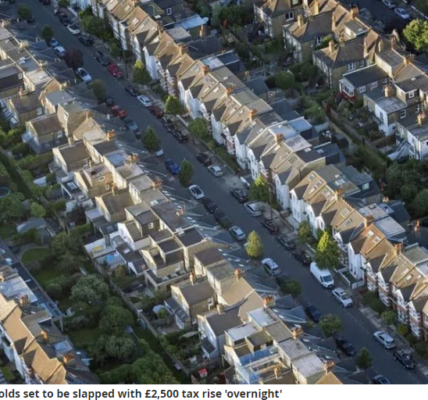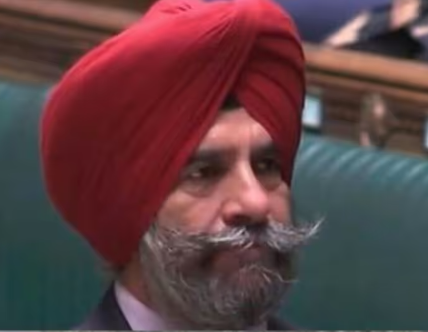The Archbishop of Canterbury, Justin Welby, has resigned after the Church of England was rocked by a high-profile abuse scandal.
Archbishop of Canterbury Justin Welby has announced he will resign after facing mounting pressure to quit over his handling of the John Smyth abuse case.
Before he made the decision, a petition, started by three members of the General Synod – the Church of England’s parliament- called for Justin Welby to quit and received more than 11,500 signatures.
Mr Welby has apologised after the independent Makin Review concluded that barrister John Smyth, who is thought to have been the most prolific abuser associated with the church, might have been brought to justice had the archbishop formally alerted authorities in 2013.
Sir Keir Starmer would not comment directly on Mr Welby’s position, saying it was a “matter, in the end, for the church”, but he made clear that Smyth’s victims had been let down.
He said: “Let me be clear: of what I know of the allegations, they are clearly horrific in relation to this particular case, both in their scale and their content.
“My thoughts, as they are in all of these issues, are with the victims here who have obviously been failed very, very badly.”
Smyth, who was a lay reader and led Christian summer camps, died aged 75 in Cape Town in 2018 while under investigation by Hampshire Police, and was “never brought to justice for the abuse”, the review published last week said.

Justin Welby has resigned. (Image: Getty)
In a statement announcing his resignation, Justin Welby said: “Having sought the gracious permission of His Majesty The King, I have decided to resign as Archbishop of Canterbury. The Makin Review has exposed the long-maintained conspiracy of silence about the heinous abuses of John Smyth.
“When I was informed in 2013 and told that police had been notified, I believed wrongly that an appropriate resolution would follow. It is very clear that I must take personal and institutional responsibility for the long and retraumatising period between 2013 and 2024.
“It is my duty to honour my Constitutional and church responsibilities, so exact timings will be decided once a review of necessary obligations has been completed, including those in England and in the Anglican Communion.
“I hope this decision makes clear how seriously the Church of England understands the need for change and our profound commitment to creating a safer church. As I step down I do so in sorrow with all victims and survivors of abuse.”
The statement continued: “The last few days have renewed my long felt and profound sense of shame at the historic safeguarding failures of the Church of England. For nearly twelve years I have struggled to introduce improvements. It is for others to judge what has been done.
“In the meantime, I will follow through on my commitment to meet victims. I will delegate all my other current responsibilities for safeguarding until the necessary risk assessment process is complete.
“I ask everyone to keep my wife Caroline and my children in their prayers. They have been my most important support throughout my ministry, and I am eternally grateful for their sacrifice. Caroline led the spouses’ programme during the Lambeth Conference and has travelled tirelessly in areas of conflict supporting the most vulnerable, the women, and those who care for them locally.
“I believe that stepping aside is in the best interests of the Church of England, which I dearly love and which I have been honoured to serve. I pray that this decision points us back towards the love that Jesus Christ has for every one of us.
“For above all else, my deepest commitment is to the person of Jesus Christ, my saviour and my God; the bearer of the sins and burdens of the world, and the hope of every person.”
What happens now that Archbishop Justin Welby has resigned?
The resignation of Justin Welby as the Archbishop of Canterbury leaves the Church of England in search of a new leader.
Unlike the appointment of the Pope, there will be no white smoke rising from Westminster Abbey, but there will be an opaque selection process for decision makers to navigate.
Since its establishment in the 1970s, the Crown Nominations Commission (CNC) has been responsible for the selection process. Consisting of 17 voting members from across the church, chaired by a public figure appointed by the Prime Minister.
The successful candidate will need to obtain two-thirds of CNC votes, although how names come to be put before the committee is not well understood.
The CNC’s preferred candidate will then be put before the Prime Minister who in theory, will decide on their suitability to be placed before the King for confirmation.


